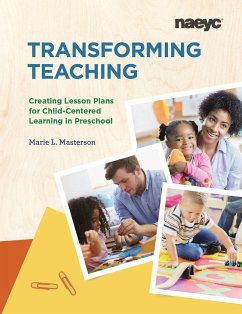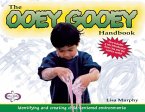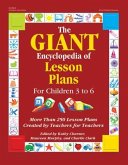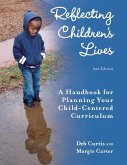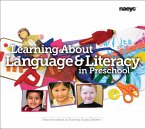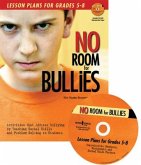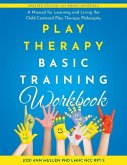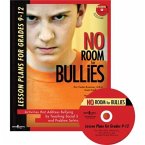The goal of this book is to help teachers assess where they are in their current teaching goals and become more intentional and organized in planning. Teachers can begin with tools they already have and build on previous activities that worked well. Great lesson planning helps teachers to choose a range of strategies that match what children are learning and doing-- from directed mini-lessons to facilitated group activities. Each chapter provides a wealth of tips and ideas. The strategies discussed in each chapter helps build a toolbox with tips that match each teacher's approach. Child-centered lesson planning provides a system to strengthen teaching. In each chapter contains step-by-step hints and action steps to make the most of your unique setting. You will explore new ways to: * Build on early learning guidelines and standards to maximize planning and communication. * Identify learning goals for materials, activities, routines, and interactions. * Design dramatic play themes that relate to daily life, families, cultures, and communities. * Infuse vocabulary to scaffold language development. * Support executive function skills and self-regulation. * Activate emotion coaching goals. * Evaluate and adapt spaces and materials to address physical needs. * Meet the linguistic and social needs of dual language learners. * Prepare meaningful and stimulating cognitive experiences. * Connect content skills, language, and literacy to dramatic play. * Integrate family engagement as a strength and asset for development and learning. * Communicate effectively with colleagues to ensure high-quality learning experiences. The NAEYC Early Learning Program Accreditation Standards and Assessment Items (2018) provide an important foundation for high-quality experiences for young children. The content and lesson planning information presented in this book align with the following NAEYC criteria: * * Standard 1: Relationships * Standard 2: Curriculum * Standard 3: Teaching * Standard 4: Assessment of Child Progress * Standard 7: Families Book Features The following features invite you to dig deeper and apply what you read to your own setting: * Daily teaching scenarios. The illustrated classroom examples show teaching in action and represent a variety of pre-K settings and situations. Here, you will see the principles and strategies presented in practical and useful ways. * Tips for Teaching. This feature details practical skills to maximize your effectiveness in meeting children's learning and social needs. You will find ideas for preparation, observation, materials, vocabulary, supporting learning, encouraging children's choices, and making the most of teaching moments. * Research Connections. Each chapter introduces easy-to-relate research links between children's development and the activities and interactions that will strengthen emerging skills. These take-away anchors will ensure you know the latest information you need. * Individualized Teaching. This section will connect the development of children to their relationships with families, communities, and culture. You will find information about facilitating learning for children who are learning multiple languages. * Balance Points. This feature includes needed behavior supports for self-regulation, strategies to promote executive function, and mediation for stress and trauma. * Ready Resources. Sources for digging deeper are provided for early screening, adaptation for special needs, technical assistance networks, state early guidelines, creative activities, national organizations, and professional development opportunities. * Helpful Hints: Quick tips provide pointers to make lesson planning work for you. * Links to NAEYC Program Accreditation Standards and Assessment Items. This feature anchors curriculum planning, effective teaching, assessment, and family engagement to professional guidelines and high-quality practices. * Sample lesson plans. Examples with explanatory captions and comments show how to plan a schedule, play areas, prop boxes, book lists and themes, and detailed teaching plans with extensions for playful learning with individualized supports. * Chapter reflection questions. Practical applications at the end of each chapter will inspire your growth and may be used for personal or group study.

